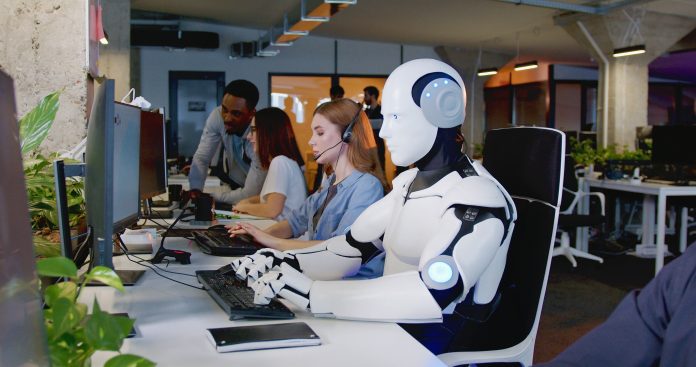Technology is changing how consumers shop for and buy cars. Yet chatbots, virtual reality applications, and artificial intelligence haven’t eliminated the need for human interaction. Modern car dealerships need to balance digital tool usage with personal touchpoints to create memorable customer experiences.
Some customers prefer to browse online and then visit a dealership for a test drive. Still, others want 100% digital transactions. And virtual agents and self-service kiosks only go so far; many customers are more satisfied with guidance and advice from live sales staff.
Here’s what to consider when determining your dealership’s technology and human interaction formula.
Balancing technology and human interaction
It’s easy to fall into the trap of letting technology handle customer interactions. But if you’ve ever screamed on the phone while attempting to navigate through a voice response system, you know digital solutions are far from perfect. And each person accepts and engages with technology differently.
So, the idea isn’t to rely solely on technology or stick with old-school approaches to customer interaction. Instead, it’s identifying a happy medium that lets a dealership take advantage of digital resources while applying the human touch when it’s most effective.
Finding the best use of the human touch
The challenge then becomes identifying when a staff person gets involved during the sales process. In truth, there’s no easy formula, but establishing guide points along the way can help.
Clearly, one of these junctures is when a customer is ready to pull the trigger. However, there are earlier milestones to consider. First is when a chatbot or other automated service can’t answer a question. In these instances, the customer should be immediately switched to a live person (via chat, text, video, or voice).
Next, other benchmarks, like requesting a test drive or inquiring about financing, are ideal opportunities to introduce a human into the equation.
Using data to guide customer interactions
Creating a balanced sales formula with the ideal technology-to-human ratio begins with basic assumptions (like those mentioned above). Yet, you’ll need to back up these premises with data. Lead analysis and other vital factors can identify, for example, if prospects are dropping out too early or if the sales process is getting drawn out.
Post-sale surveys are also crucial. Here’s your chance to find out if your sales process is too reliant on technology or if introducing a live person into the mix could have waited.
Looking outside the auto industry for inspiration
Although a vehicle is central to customer encounters at a dealership, the car business is actually about service. So, examining service-oriented industries for ideas makes sense. Let’s use hotels as an example.
Many lodging companies enable guests to select a room, check in, and even activate a digital key via a smartphone app. No contact with front desk staff is required. However, should a personal touch be preferred or required, people are there to help. The customer can select how they want to interact with the business.
Creating opportunities for meaningful moments
Customer-targeted sales technology can’t be a one-size-fits-all solution. Digitally native Gen Zers buying their first cars may get their “wow moment” by completing the entire process online. According to Kinsey, almost 60% of car shoppers under 45 prefer to buy online.
On the other hand, a Baby Boomer looking to swap their 12-year-old sedan for an SUV may find the same experience a total turn-off. For this customer, the key is identifying the point when technology becomes more of a hindrance than a help. They need a digital off-ramp for live support. Individualizing how each customer interacts with technology and live sales staff is the surest path to success.



